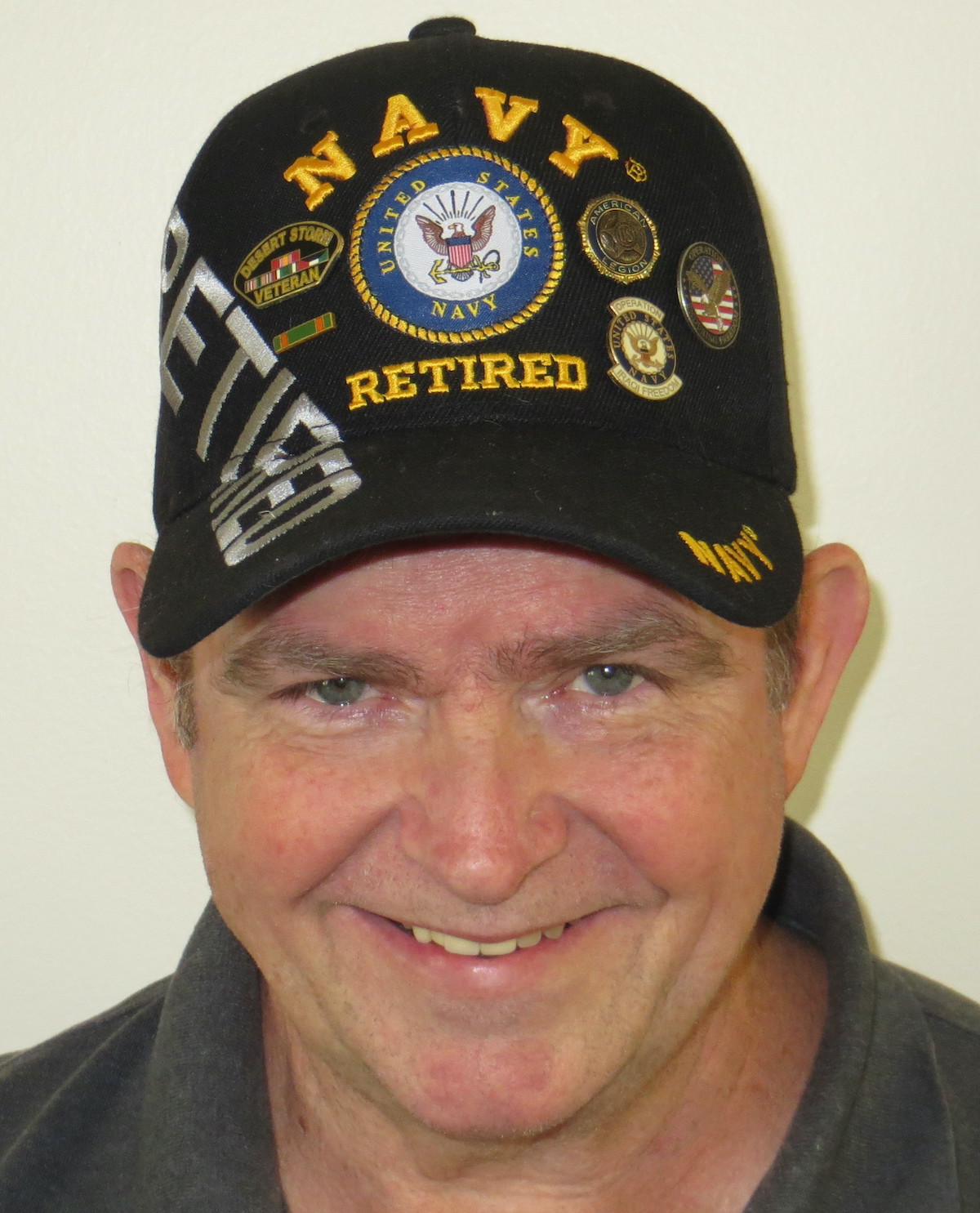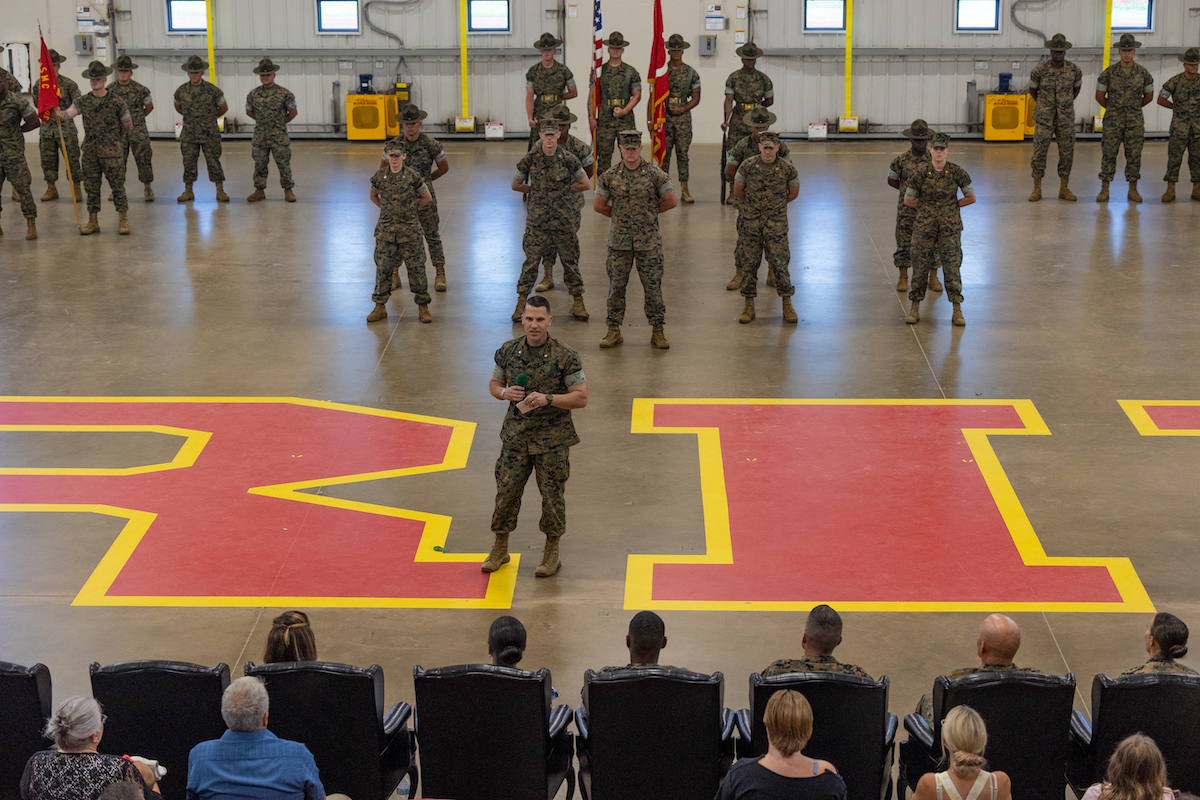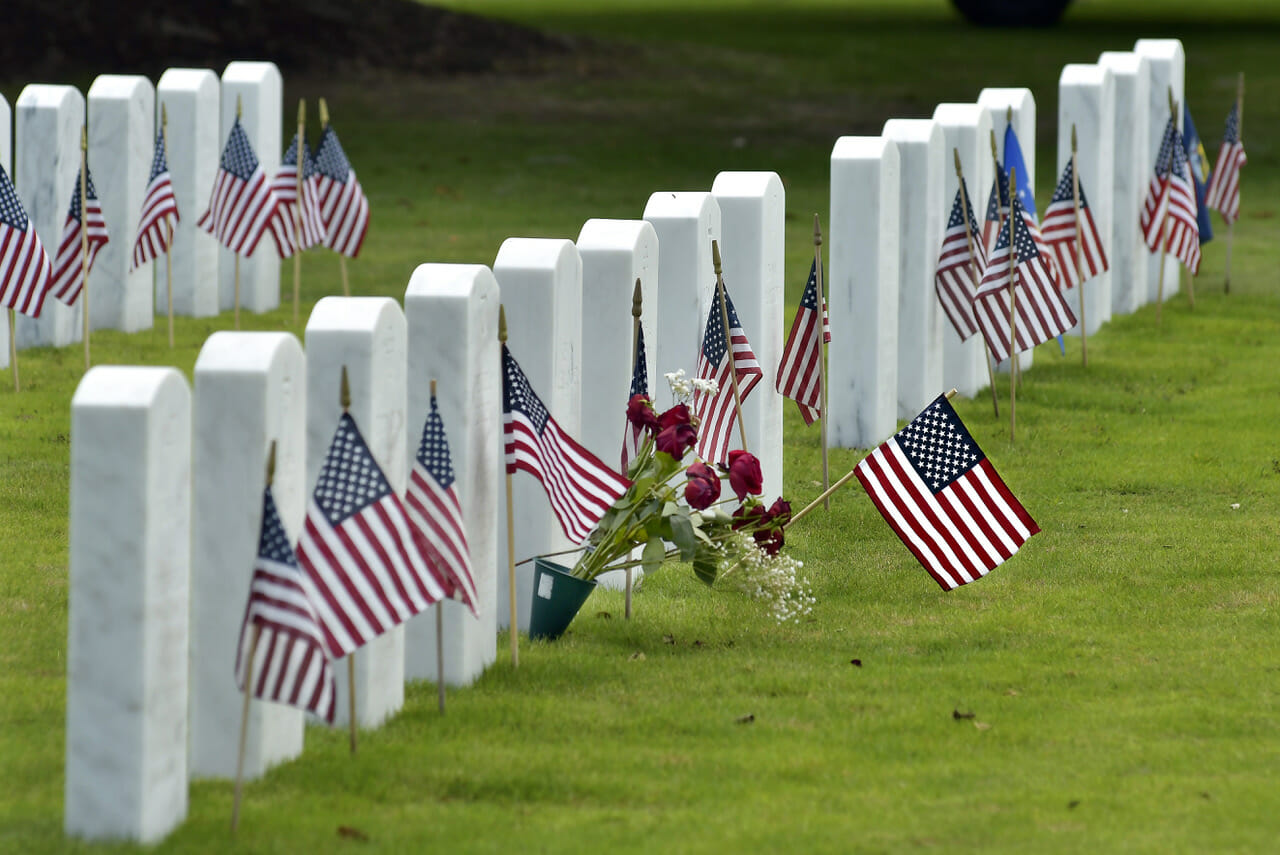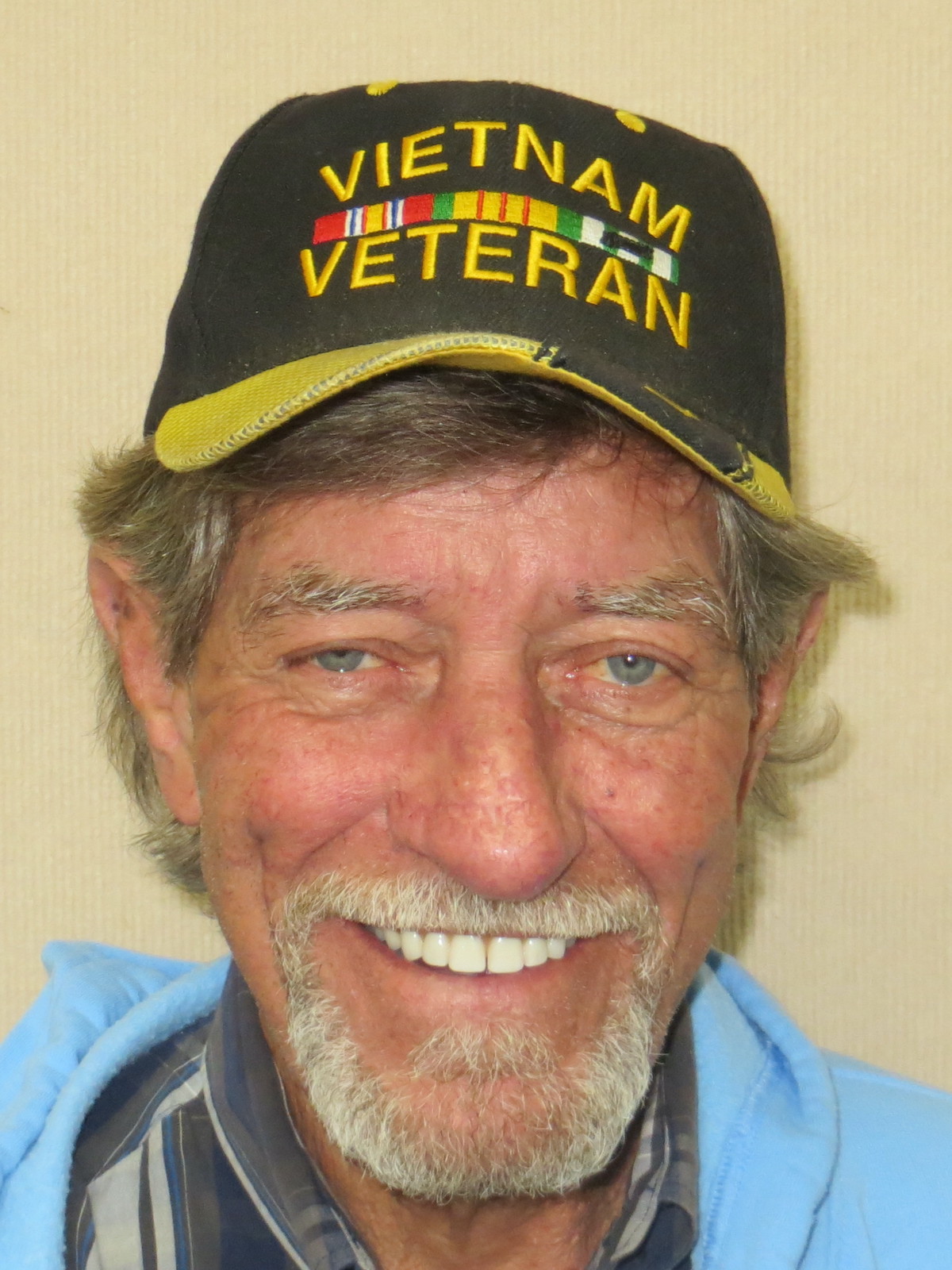What veterans, their families can do when veterans run afoul of law enforcement, the criminal justice system
Unfortunately, veterans sometimes are arrested, placed into protective custody, summoned, and incarcerated. It is vital that veterans and their family members, police departments and sheriff’s offices, officers, deputies, constables, federal agents, and courts know who to contact at the VA Medical Center serving that area.
As a former police officer and a volunteer patient adviser at the Ralph H. Johnson VA Medical Center, I have first-hand experience with helping veterans who run into issues with law enforcement and the criminal justice system. I was frustrated with the fact that states have passed on to police officers the first responder and sometimes, the only responder, the responsibility for mentally ill persons and especially mentally ill veterans.
Not all veterans who run afoul of the law are mentally ill, but many suffer from Post-Traumatic Stress Disorder (PTSD) and the other mental health problems like depressive disorders, anxiety disorders, mood disorders, schizophrenia and psychotic disorders, dementia, substance abuse disorders, and the nearly 300 mental disorders listed in the DSM-5 (Diagnostic and Statistical Manual of Mental Disorders).
The bad news is:
Some police departments, jails, courts, states, and federal law enforcement agencies are behind on joining with the VA in helping veterans and their families when they are arrested, placed in protective custody, incarcerated, and released from jails and prisons;
Many veterans do not know what their VA benefits are and how they are affected by the justice system. See the VA website at https://www.benefits.va.gov/PERSONA/index.asp for an overview of the benefits available to veterans. Many VA benefits can be affected by incarceration. See the VA website at https://bit.ly/2ZO3Ghj titled Incarcerated Veterans for more information on justice-involved Veterans.
Police officers are overwhelmed with too many important tasks. There is little time left and not enough training available for those who wear a badge to also be mental health experts;
States have eliminated most of their in-house mental health facilities/hospitals and reduced funding for mental health services. See National Public Radio’s article entitled How The Loss Of U.S. Psychiatric Hospitals Led To A Mental Health Crisis, at https://n.pr/3CRuOuh for more on this disaster;
County out-patient mental health facilities are overwhelmed with patients; and, much worse, a significant amount of our mental health care now for individuals with serious mental illness has been shifted to correctional facilities;
Some police departments, jails, courts, states, and federal law enforcement agencies have not been educated on how to avoid unnecessary criminalization of mental illness and incarceration by ensuring eligible justice-involved veterans receive timely access to VA health care, specifically mental health and substance use services (if clinically indicated), homeless prevention, and other VA services and benefits as appropriate.
The good news is:
The Ralph H. Johnson VA Health Care System (RHJVAHCS) has a robust Veterans Justice Out-Reach Program, with three highly-trained social workers serving veterans and their families and the law enforcement agencies and courts in the Lowcountry of S.C. and Savannah, Ga., and Hinesville, Ga., area.
Despite the circumstances, some justice-involved Veterans may be eligible for VA benefits, including but not limited to disability compensation, education and training, health care, home loans, insurance, Veteran Readiness and Employment (VR&E), and burial. See our veterans page at https://bit.ly/3buBqmd for an overview of the benefits available to all veterans. Many VA benefits can be affected by incarceration.
The VA Programs for Justice-Involved Veterans includes:
The Health Care for Re-entry Veterans (HCRV) Program: The program is designed to help incarcerated veterans successfully reintegrate back into the community after their release. HCRV provides information to Veterans while they are incarcerated, so they can plan for re-entry themselves. A primary goal of the HCRV program is to prevent Veterans from becoming homeless once they are reintegrated back into the community. Read more about the HCRV program at https://www.va.gov/homeless/reentry.asp.
The Veteran Justice Outreach (VJO) Initiative: The initiative is designed to help Veterans avoid unnecessary criminalization of mental illness and extended incarceration by ensuring eligible justice-involved Veterans receive timely access to VA health care, specifically mental health and substance use services (if clinically indicated) and other VA services and benefits as appropriate. Learn more about the VJO Initiative at https://www.va.gov/homeless/vjo.asp.
The Ralph H. Johnson VA Health Care System’s VJO Program
The Chief of the RHJVAHCS Veterans Justice Outreach Program is Dr. Hugh Myrick, the Associate Chief of Staff for Mental Health. Dr. Myrick has three highly trained social workers working with him on the RHJVAHCS Veterans Justice Outreach Program. The three VJO social worker team members are Meredith Miller, Shanta Barron-Millan and Suzanne Day.
Shanta Barron Millan covers Beaufort, Jasper, and Hampton counties and the Savannah and Hinesville, Ga., areas, including Chatham, Liberty, Bryan, Evans, Long, McIntosh, Effingham, and Tattnall counties. Shanta also provides services to other neighboring counties in the RHJVAHCS and those services sometime require collaboration with the VA Medical Center VJO Teams in Augusta and Dublin, Ga., and in Jacksonville and Gainesville, Fla.
Suzanne Day covers Georgetown, Horry, and Williamsburg counties.
Meredith Miller covers Charleston, Dorchester, Berkeley, and Colleton counties.
The primary goal of the VJO Program is to offer the court options for a potential diversion through VA treatment. This could mean making the court aware of a defendant’s ability to receive VA treatment in the substance abuse team, housing, mental health, medical, and other areas of VA support.
There are five veterans courts in the RHJVAHCS catchment area. The VA’s VJO Team provides police training to make officers aware of the VJO program. The VJO Team has close relationships with probation offices, public defenders’ offices, jails, prosecutors, and courts.
The RHJVAHCS VJO social workers work with municipal, county, state and federal courts that are open to working with the VA. They also work with the VA Police Department; city, county, and state police departments; sheriff’s offices; and Federal Law Enforcement agencies.
The Ralph H. Johnson VA Health Care System VJO Program has reach into Charleston, Berkeley, Dorchester, Colleton, Horry, Georgetown, Beaufort, Hinesville, and Savannah jails, and the Charleston and Savannah Veteran specific housing units.
VA social workers Miller, Day, and Millan work closely with the S.C. and Ga., county Mental Health Offices in their quest to help veterans involved with Law Enforcement and the Criminal Justice System. These three social workers cover the 14 counties in S.C. and Ga., which are serviced by the RHJVAHCS, including Horry, Georgetown, Berkeley, Charleston, Dorchester, Beaufort, Colleton, Hampton, Jasper, Chatham, Liberty, Bryan, Long, and Effingham counties.
THE RHJVAHCS VJO Team works with S.C. Legal Services (see https://sclegal.org ) to offer a monthly legal clinic to address multiple civil issues pertaining to veterans. S.C. Legal Services are income based, so a veteran must fall under their cutoff (which is 200 percent and below of the federal poverty guideline) to obtain free services. The VA also works with many local private attorneys and S.C. Legal Services, which assists justice-involved veterans with wills, powers of attorney and medical directives.
The Ralph Johnson VA VJO Team provides multiple training sessions each year, on Crisis Intervention (CIT) to law enforcement officers. The VJO Team also coordinates a free 12-week training course, through the National Alliance on Mental Illness (NAMI) program, for family members of veterans who live with mental illnesses such as major depression, bi-polar disorder, schizophrenia and post-traumatic stress disorder (PTSD).
Read more about NAMI at https://bit.ly/3pYmF3x.
How can you help veterans involved in the criminal justice system?
Firstly, spread the word about the Veterans Justice Outreach Program. The VJO program is available to those veterans that find themselves needing legal, homeless, and mental health assistance.
Secondly, help educate all veterans and their family members, courts, public defenders and prosecutors, private criminal defense firms, law enforcement agencies and officers, jails and prisons, and probation offices to get help under the VJO Initiative. To get help and find out more about VJO, contact Meredith Miller at Meredith.Miller2@va.gov or 843-297-0019; Shanta Barron-Millan at Shanta.Barron-Millan@va.gov or 843-300-7486; or Suzanne Day at Suzanne.Day@va.gov or 843-252-3859.
Thirdly, help homeless veterans by referring them to the Primary Homeless Prevention Coordinator, Elijah Profit at Elijah.Profit@va.gov or 803-642-2929, Veterans Benefits Administration (VBA) Region Office, Columbia.
Fourthly, thank the Beaufort, S.C., Court System for having a model Veterans Court and supporting veterans and encourage all courts and law enforcement agencies to participate and take advantage of the VJO Program and the free training.
Larry Dandridge is a retired Lt. Col. In the U.S. Army. He is a Vietnam War era wounded warrior, a combat and 100 percent disabled veteran, a former Infantryman, former Warrant Officer and pilot. Dandridge is also a past Veterans Service Officer, and a current volunteer Patient Adviser, CEO Advisory Council Member, and Patient and Family Advisory Committee Member at the RHJ VA Medical Center, as well as a published author and free-lance writer. He can be reached at LDandridge@earthlink.net.







